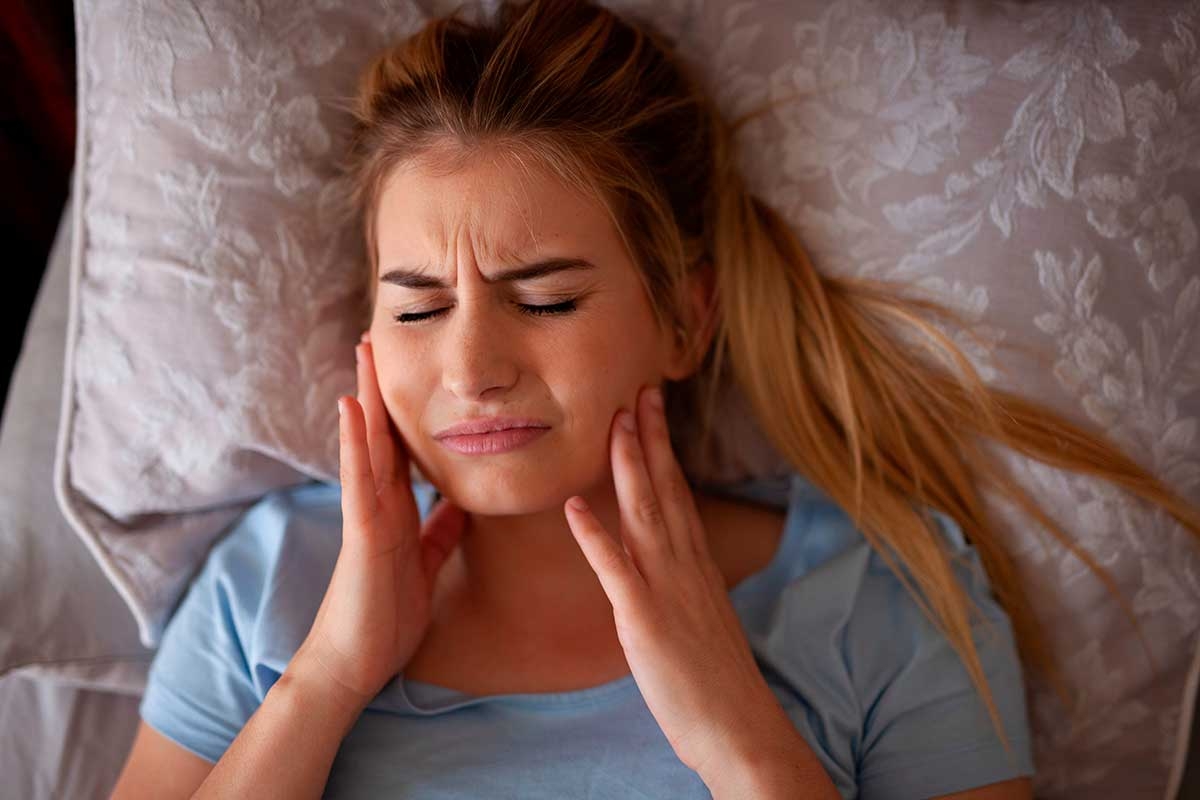
Bruxism Treatment
Watch our video about Bruxism Treatment
Bruxism is a condition where a person grinds or clenches their teeth involuntarily, often occurring during sleep or periods of stress. This habit can lead to tooth wear, jaw pain, headaches, and other oral health issues.
There are two types of bruxism: sleep bruxism, which happens during sleep, and awake bruxism, which occurs when a person is awake but unaware of the clenching. Early diagnosis and treatment can prevent severe dental damage and chronic discomfort.
What Causes Bruxism?
Bruxism can have multiple underlying causes, including:
- Stress and Anxiety – Emotional tension increases muscle activity, leading to grinding.
- Sleep Disorders – Conditions like sleep apnea are linked to nighttime teeth grinding.
- Misaligned Teeth (Malocclusion) – Poor dental alignment can contribute to bruxism.
- Caffeine and Alcohol Consumption – Stimulants can increase muscle activity in the jaw.
- Neurological Disorders – Conditions like Parkinson’s disease can contribute to bruxism.
- Medications – Some antidepressants and stimulants may trigger grinding as a side effect.
- Genetics – Bruxism can run in families, indicating a hereditary component.
Identifying the root cause is essential for selecting the most effective treatment.
How to Prevent Bruxism?
Preventive measures can help reduce the risk and severity of bruxism:
- Managing stress through relaxation techniques like meditation or therapy.
- Maintaining a regular sleep schedule to improve sleep quality.
- Wearing a mouthguard at night to prevent enamel wear.
- Reducing caffeine and alcohol intake, especially before bedtime.
- Avoiding chewing on non-food items, such as pencils or fingernails.
- Practicing jaw relaxation exercises to decrease muscle tension.
- Regular dental check-ups to monitor any changes in tooth structure.
Addressing risk factors prevents long-term damage and promotes oral health.
What Are the Treatments for Bruxism?
The choice of treatment depends on the severity and underlying cause of the condition:
- Custom Nightguards (Mouth Splints) – Specially designed dental appliances that protect teeth from grinding at night.
- Stress Management Therapy – Psychological counseling or relaxation techniques to reduce anxiety-related bruxism.
- Dental Corrections – Adjusting the bite through orthodontics, crowns, or reshaping teeth to reduce pressure.
- Botox Injections – Temporarily relaxes jaw muscles to prevent excessive clenching.
- Medication Adjustments – If bruxism is medication-induced, alternative prescriptions may be explored.
- Lifestyle Changes – Reducing caffeine, alcohol, and smoking to lower muscle activity.
- Physical Therapy and Jaw Exercises – Helps relax and strengthen jaw muscles.
A personalized treatment plan ensures the best long-term relief and protection.
Advantages of Treating Bruxism
Proper treatment for bruxism offers numerous health benefits:
- Prevents Tooth Damage – Protects enamel from excessive wear and fractures.
- Reduces Jaw Pain and Tension – Eases discomfort in the temporomandibular joint (TMJ).
- Improves Sleep Quality – Minimizes nighttime grinding and associated sleep disturbances.
- Prevents Headaches and Facial Pain – Reduces tension-related pain caused by clenching.
- Decreases Risk of Gum Recession – Grinding can contribute to gum loss and sensitivity.
- Enhances Overall Well-Being – Alleviating symptoms improves daily comfort and quality of life.
- Protects Dental Work – Preserves crowns, fillings, and veneers from excessive force.
Addressing bruxism early prevents serious dental and health complications.
How Long Does the Treatment Last?
The duration of bruxism treatment depends on the cause and severity:
- Mouthguard Therapy – Provides immediate protection and lasts for several years.
- Stress Reduction Techniques – Long-term management varies based on individual response.
- Botox for Bruxism – Effects last about 3 to 6 months, requiring periodic reapplication.
- Orthodontic Treatment – May take several months to years for permanent bite correction.
- Physical Therapy and Exercises – Results improve with consistent practice over weeks or months.
With proper treatment and follow-up, bruxism symptoms can be significantly reduced or eliminated.
Who Should Consider Bruxism Treatment?
Bruxism treatment is recommended for individuals who experience:
- Frequent jaw pain or stiffness upon waking.
- Worn-down, cracked, or chipped teeth due to grinding.
- Persistent headaches or migraines, especially in the morning.
- Increased tooth sensitivity without cavities.
- Loud grinding noises during sleep, noticed by a partner.
- Earaches without an infection, caused by jaw tension.
- Tight or fatigued jaw muscles throughout the day.
Seeking early intervention prevents progressive damage and chronic pain.
Alternatives for Those Who Cannot Undergo Bruxism Treatment
For individuals unable to undergo conventional bruxism treatments, alternative solutions include:
- Over-the-Counter Mouthguards – Temporary relief for minor grinding.
- Cognitive Behavioral Therapy (CBT) – Helps manage anxiety-driven bruxism.
- Massage and Acupuncture – Alternative methods to relieve muscle tension.
- Cold or Warm Compresses – Reduces jaw inflammation and discomfort.
- Dietary Adjustments – Anti-inflammatory foods may reduce muscle tension.
- Soft Diet Modifications – Avoiding hard foods can prevent further strain.
- Sleeping Position Changes – Adjusting head posture can minimize pressure on the jaw.
Consulting with a specialist helps identify the most suitable approach for each case.
Schedule Your Bruxism Treatment at Clinic Consultation
At Clinic Consultation, we offer advanced bruxism treatments to help protect your teeth and relieve discomfort. Our specialists use customized solutions, from mouthguards to Botox therapy, to provide the best results for long-term oral health.
📅 Book your consultation today and start your journey toward a pain-free, healthier smile with Clinic Consultation!
Click here to schedule an appointment online